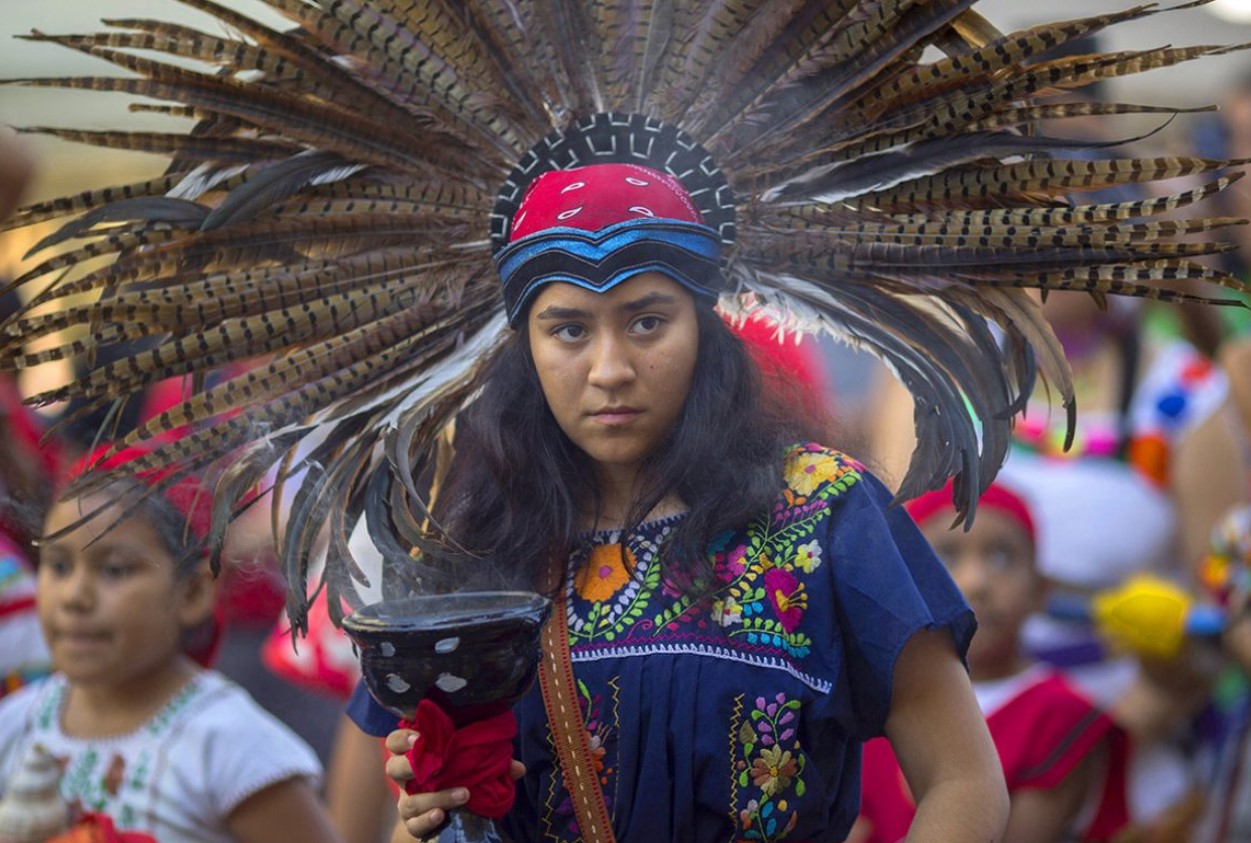Indigenous Peoples Day is a day to honor the histories and cultures of the Native Americans who were the first inhabitants of America. The day is celebrated on the second Monday of October, coinciding with the federal holiday of Columbus Day, which has been criticized for glorifying the colonization and genocide of indigenous people.
President Joe Biden officially commemorated Indigenous Peoples Day in 2021, saying that the day is meant to “honor America’s first inhabitants and the Tribal Nations that continue to thrive today.” According to the Pew Research Center, 17 states and Washington, D.C., have holidays honoring Native Americans. Dozens of cities and school systems also observe Indigenous Peoples Day.

Sunrise gatherings, dances and speeches mark the celebration of culture
On October 9, 2023, Native Americans celebrated their culture and heritage with various events across the country. Some of the highlights were:
- In Minneapolis, Minnesota, about 150 people, including the governor and lieutenant governor, attended a sunrise prayer and ceremony at Bde Maka Ska, a lake surrounded by parkland on the south side of the city. The event featured drumming, singing, dancing and speeches by indigenous leaders and activists. Thorne LaPointe, an organizer who is Sicangu Lakota, said: “Today, we recognize our ancestors and predecessors who really laid the foundation for us to stand. And we will always recognize our elders who are here and those who have gone on before us, who really kicked open the doors in their time, nationally and internationally.”
- In Augusta, Maine, several hundred people rallied outside the State House in support of a Nov. 7 statewide vote that would restore language about the state’s obligations to Native American tribes to printed versions of its constitution. Maulian Bryant, Penobscot Nation ambassador and president of the Wabanaki Alliance, said: “We are here today to celebrate our culture, our history, our resilience and our future. We are also here to educate people about why this constitutional amendment is so important for us as sovereign nations.”
- In Seattle, Washington, a celebratory march was held from Westlake Park to City Hall, where indigenous speakers addressed the crowd. The marchers carried banners and signs with messages such as “We are still here” and “Honor Native treaties.” One of the organizers, Matt Remle, who is Lakota, said: “We are here to celebrate our existence, our survival, our resistance and our resilience. We are also here to demand justice for our missing and murdered indigenous relatives, for our sacred lands and waters, and for our future generations.”
- In Phoenix, Arizona, a gathering was held at Steele Indian School Park, where dancers performed in traditional Aztec clothing. Sifa Matafahi, who is Tongan American, said: “This is an opportunity to pay respect to indigenous cultures, to learn from them, to appreciate them and to reflect on our past and history while also acknowledging our cultural presence.”
- In Anchorage, Alaska, a festival was held at the Alaska Native Heritage Center, where visitors enjoyed traditional dancing, music, food and crafts. The event also featured a panel discussion on indigenous perspectives on climate change. Crystal Frank, who is Athabascan and Inupiaq Eskimo, said: “This is a day to celebrate who we are as indigenous people. We have a lot to offer to the world in terms of our values, our knowledge and our ways of living in harmony with nature.”
A day to raise awareness and advocate for change
Indigenous Peoples Day is not only a day to celebrate culture but also a day to raise awareness and advocate for change. Many indigenous activists use the day to highlight the ongoing issues and challenges that Native Americans face in terms of land rights, environmental justice, health care, education and representation.
Some of the goals that indigenous advocates are working towards are:
- Reclaiming indigenous names for places that have been colonized or renamed by settlers.
- Protecting sacred sites and natural resources from exploitation and destruction by corporations and governments.
- Ending violence against indigenous women and girls who are disproportionately affected by human trafficking, domestic abuse and murder.
- Promoting indigenous languages and cultures in schools and media.
- Supporting indigenous self-determination and sovereignty in political and legal matters.
Indigenous Peoples Day is a day to honor the past but also to envision the future. As President Biden said in his proclamation: “On Indigenous Peoples Day we recognize that we can only build back better by fully acknowledging not erasing our history; by honoring not ignoring Tribal sovereignty; by ensuring not impeding access to opportunity; by listening not silencing Tribal voices; by celebrating not appropriating Indigenous cultures; by standing with not against Native communities; by repairing not deepening broken promises; by respecting not exploiting our natural resources; and by advancing not obstructing the cause of justice for all people.







